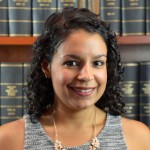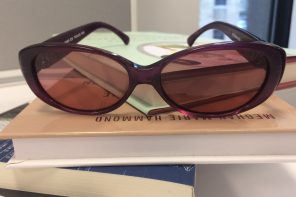After college, I spent a year working in consumer marketing for an international beauty company, where I learned, among many things, the value of knowing your audience. Understanding your demographic is essential to making a sale, especially in a world of ever-increasing information overload. Because, let’s face it, if your customers are clamoring for long-wear lipstick, why would you expect them to buy last year’s sheer gloss?
I found myself reflecting on this lesson after a visit to my university’s career services office in October, part of my first assignment as a Connected Academics proseminar fellow. I met with a friendly career counselor, but it soon became clear that I would not receive counseling about what I could do with my PhD in comparative literature outside the academy; rather, I would need to bring in an ad for a job I was already considering, along with a tailored cover letter and résumé for critique. When I mentioned to my counselor that graduate students often have a hard time even knowing what job titles and fields to look for, he suggested I search LinkedIn to see what other alumni from my program were doing. This advice was somewhat helpful but left me feeling that I would need to search a vast world of jobs without clear guidance on what I would be good at, information that might have been available to me through a personality-assessment test or—better yet—a list of organizations interested in hiring people with PhDs.
I may be asking for too much, but if career services offices that typically work with undergraduates are genuinely interested in helping graduate students—and I believe they are—an approach better tailored to what those students need will encourage them to take advantage of counseling. Efforts at such an approach have already begun: career services offices around the country are hiring counselors who hold PhDs in the humanities and social sciences, since these counselors have firsthand knowledge of the unique challenges faced by PhD-holding job seekers.
With this in mind, here are three ways career services offices might approach the graduate student demographic:
Support Career Exploration
As I explained to my counselor, for much of graduate school, students are urged to develop the skills and qualifications needed to secure a tenure-track position, but little advice is given on preparation for other types of jobs. Career services offices could offer workshops about the variety of careers available to PhD recipients and tools (career assessments, worksheets) to help graduate students rethink the applicability of their skills. When I searched the career services Web site for my university, I was able to locate a few of these assessment tools, but I was surprised they weren’t suggested to me in my meeting with the counselor, since I opened our discussion by asking about resources available to help me in my potential job search. Publicizing these tools and making them easier to access would go a long way to encourage graduate student engagement in career exploration.
Address Our Unique Concerns
During my appointment, I explained that graduate students might not always feel support from their programs or departments in an alternative job search and suggested how this situation might create unease when students ask for references. I wondered whether the career services office could do more on its Web site to signal that the office would be a reassuring space for graduate students to explore options and seek encouragement and validation in the job search. Even an acknowledgment that some graduate students may see an alt-ac or nonacademic search as indicative of failure (which it isn’t!) would have helped make my meeting feel tailored to the graduate student experience.
Understand Our Timeline
When I asked about the appropriate timeline for an alt-ac or nonacademic job search, my counselor encouraged me to search for jobs right away. When I explained that I was still revising my dissertation and would not be able to begin work until the summer, he suggested that were I to land a job I might be able to delay my start date but that even if I couldn’t, it would still be a good experience to go through the job-search process. Although I respect this kind of thinking, as a dissertating graduate student with limited time, I am constantly assessing whether a particular activity is worth directing my attention away from my research and writing. Whereas entry-level positions to which undergraduates typically apply are often designed to begin postgraduation, the kinds of positions designed for someone with a PhD would not, I was convinced, necessarily follow the same calendar. I left feeling that had my counselor understood the challenges of conducting a nonacademic job search while still very much engaged in academic projects required for graduation, he might have given me advice that was more consistent with the realities of graduate student life.
Career services offices have no doubt taken an important first step in addressing the needs of PhD candidates by offering appointments labeled “for graduate students.” The next step will be to refine the product, if you will, so that it is designed for the concerns and needs of this demographic. The good news is that there is a growing market for this product, and with the right approach, career services offices are bound to see a sharp increase in interest from graduate students.
 Carolyn Ureña is a PhD candidate in comparative literature at Rutgers University and a 2016–17 Ford Foundation Dissertation Fellow. Her dissertation project, “Invisible Wounds: Rethinking Recognition in Decolonial Narratives of Illness and Disability,” brings the racial-phenomenological perspective of revolutionary Martinican psychiatrist Frantz Fanon into conversation with discourses of black lived experience and bodily disruption in US and Caribbean literature and film. She earned her MA in English language and literature from the University of Maryland, College Park, in 2011, and her AB in comparative literature from Princeton University in 2008. As an interdisciplinary researcher she is passionate about building on the links between the humanities and medicine. In her work as a fellowship advisor at GradFund, the graduate fellowship advising office of the Rutgers Graduate School–New Brunswick, she enjoys helping graduate students across the disciplines secure external research funding through individual peer mentoring meetings and grant writing workshops.
Carolyn Ureña is a PhD candidate in comparative literature at Rutgers University and a 2016–17 Ford Foundation Dissertation Fellow. Her dissertation project, “Invisible Wounds: Rethinking Recognition in Decolonial Narratives of Illness and Disability,” brings the racial-phenomenological perspective of revolutionary Martinican psychiatrist Frantz Fanon into conversation with discourses of black lived experience and bodily disruption in US and Caribbean literature and film. She earned her MA in English language and literature from the University of Maryland, College Park, in 2011, and her AB in comparative literature from Princeton University in 2008. As an interdisciplinary researcher she is passionate about building on the links between the humanities and medicine. In her work as a fellowship advisor at GradFund, the graduate fellowship advising office of the Rutgers Graduate School–New Brunswick, she enjoys helping graduate students across the disciplines secure external research funding through individual peer mentoring meetings and grant writing workshops.







